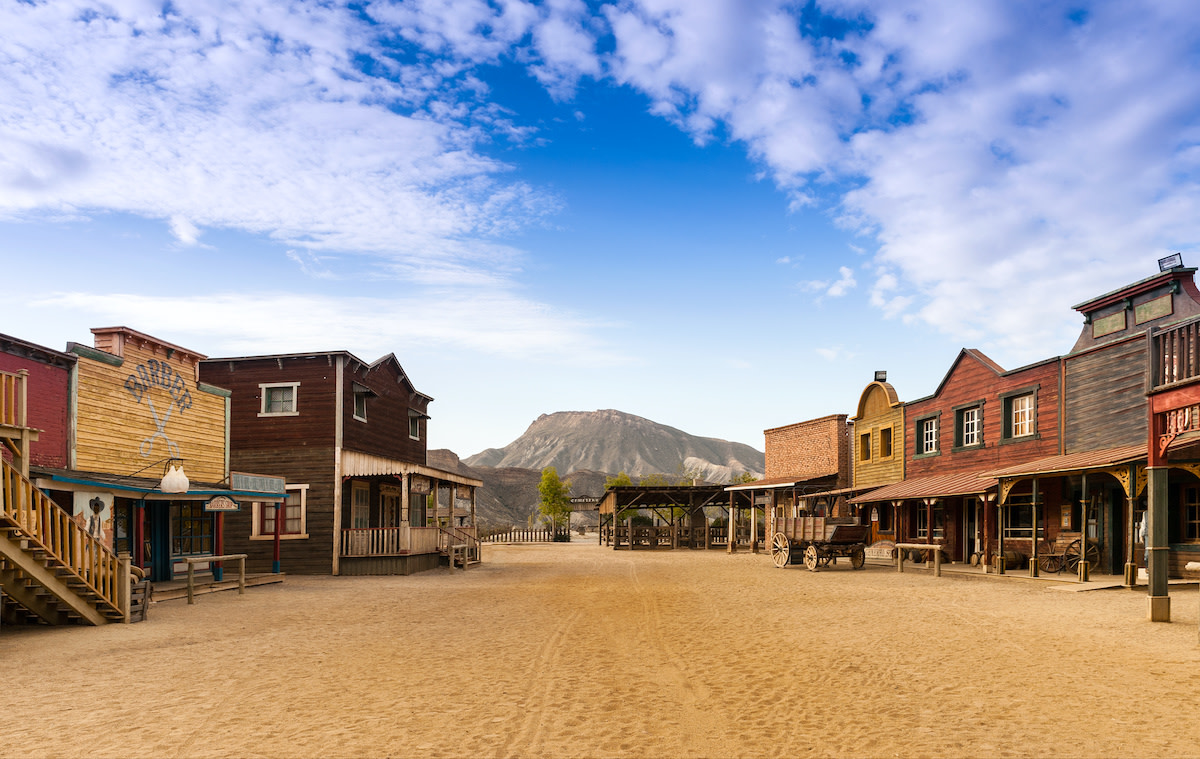Spaghetti Western Film Guide: 5 Spaghetti Western Filmmakers
Written by MasterClass
Last updated: Aug 27, 2021 • 3 min read
Learn about the characteristics and famous filmmakers of the spaghetti western film genre, which began in Italy and gained popularity during the 1960s and early 1970s.
Learn From the Best
What Is a Spaghetti Western?
Spaghetti westerns, also called Italian westerns or western all’italiana, are a subgenre of western films. The term “spaghetti western” was coined by Spanish journalist Alfonso Sánchez to describe the low-budget films being made in Italy during the 1960s and early 1970s.
Italian directors, writers, and producers filmed spaghetti westerns throughout Europe, shooting in countries like Italy and Spain. These European films typically cast American actors in the leading roles—most notably Clint Eastwood, Lee Van Cleef, and Eli Wallach. These box office hits changed the course of genre films in Hollywood and influenced contemporary filmmakers like Quentin Tarantino.
4 Characteristics of the Spaghetti Western Genre
Spaghetti westerns developed a new style of filmmaking that still influences movies today.
- 1. Antiheroes: Spaghetti westerns feature morally ambiguous main characters like bounty hunters and gunslingers seeking revenge. In Zapata westerns, a type of spaghetti western, Mexican bandits team up with American gunfighters to revolt against corrupt governments.
- 2. Close-up shots: Spaghetti westerns used distinct close-up shots to express tension and emotion, often using a dramatic zoom to achieve the close-up effect.
- 3. Scoring: Composer Ennio Morricone created a new style of western music with whistling and electric guitars that became the standard in western scoring for decades to come.
- 4. Opening credits: Italian filmmakers used colorful graphic design to create iconic opening credit sequences for their western movies.
3 Differences Between Westerns and Spaghetti Westerns
Spaghetti westerns and traditional American westerns share a similar setting, but they differ from each other stylistically in several ways.
- 1. Violence: Spaghetti westerns include bloody gunfights and use gore in a way that Hollywood westerns were unable to do under the Motion Picture Production Code (also known as the Hays Code) that lasted from 1934 to 1968.
- 2. Ambiguous morality: In Hollywood, classic westerns portrayed clear-cut heroes and villains. By contrast, Spaghetti westerns blurred the lines between good and evil with violent antiheroes and sympathetic villains.
- 3. Cynical themes: While earlier American cinema idealized the Wild West, spaghetti westerns took a more realistic approach. Often influenced by left-wing political worldviews, Italian filmmakers focused their stories on the systematic corruption in the Old West.
5 Notable Spaghetti Western Filmmakers
To learn more about the spaghetti western genre, explore the work of these Italian filmmakers.
- 1. Sergio Leone (1929–1989): Sergio Leone was one of the most influential spaghetti western directors of the era. His Dollars Trilogy, also known as the Man with No Name Trilogy, includes three iconic films starring Clint Eastwood: A Fistful of Dollars (1964), For a Few Dollars More (1965), and The Good, the Bad and the Ugly (1966). Another of Leone’s films that influenced American cinema was Once Upon a Time in the West (1968).
- 2. Sergio Corbucci (1927–1990): Sergio Corbucci wrote and directed Django (1966), a remake of Akira Kurosawa’s Yojimbo (1961) about a soldier (played by Franco Nero) seeking revenge. Corbucci also directed The Great Silence (1968) and Navajo Joe (1966), which inspired the storyline for Quentin Tarantino’s Django Unchained (2012).
- 3. Giulio Petroni (1917–2010): Best known for his emotional and violent westerns like Death Rides a Horse (1967) and Tepepa (1968), Petroni’s style focused on the dark side of human nature.
- 4. Enzo Barboni (1922–2002): Enzo Barboni developed a unique take on the spaghetti western genre by incorporating comedic elements. Two of his films, They Call Me Trinity (1970) and Trinity Is Still My Name (1971), star Terence Hill as a lazy gunfighter with a quick wit.
- 5. Tonino Valerii (1934–2016): Tonino Valerii directed a wide range of spaghetti westerns, including the violent Day of Anger (1967), starring Lee Van Cleef, and the comedic My Name Is Nobody (1973).
Want to Learn More About Film?
Become a better filmmaker with the MasterClass Annual Membership. Gain access to exclusive video lessons taught by the world’s best, including James Cameron, Spike Lee, David Lynch, Shonda Rhimes, Jodie Foster, Martin Scorsese, and more.
